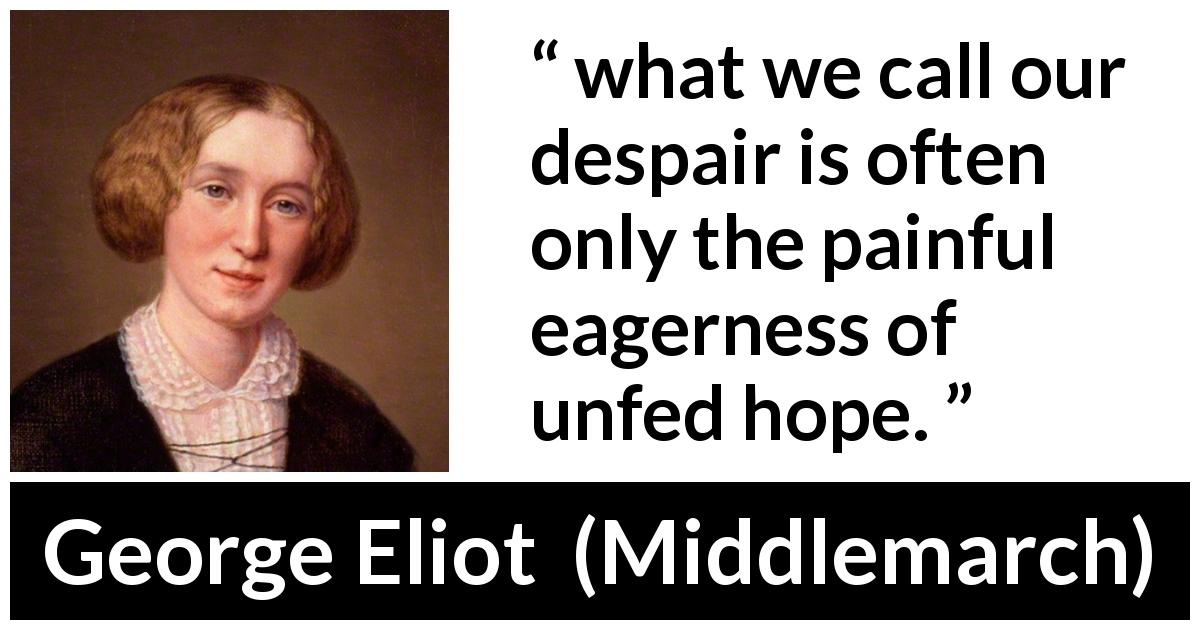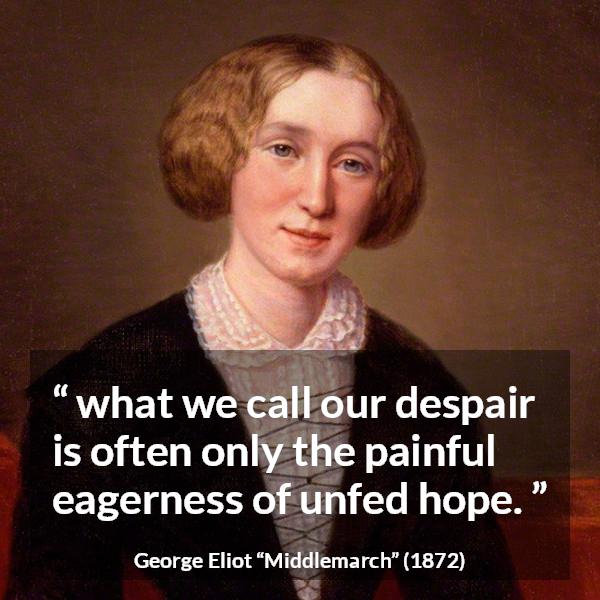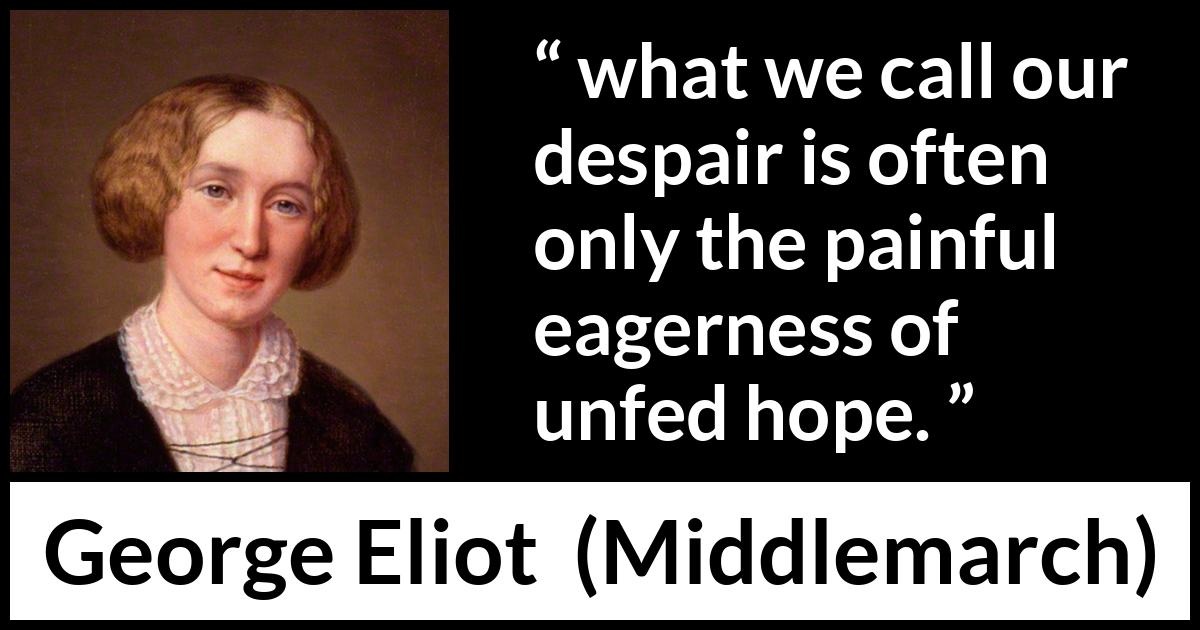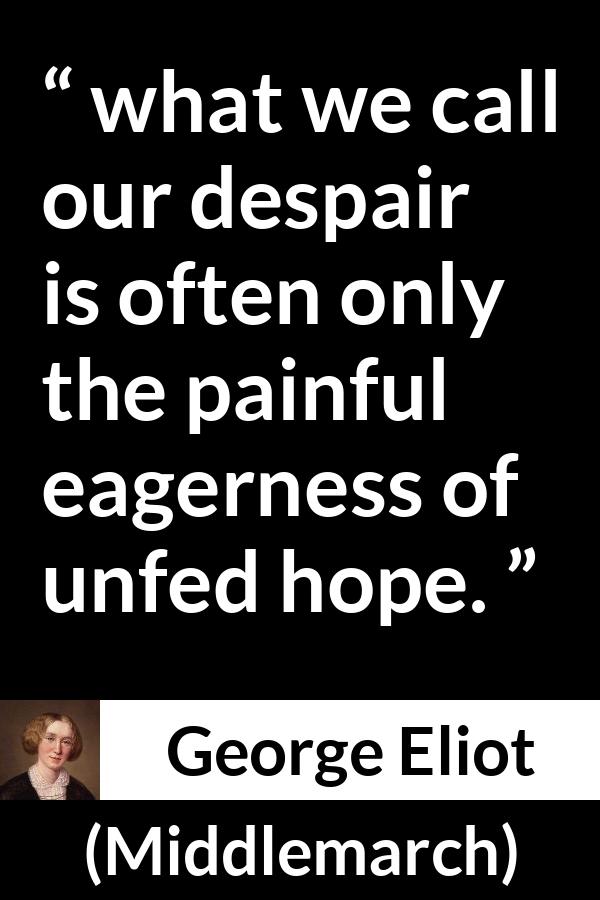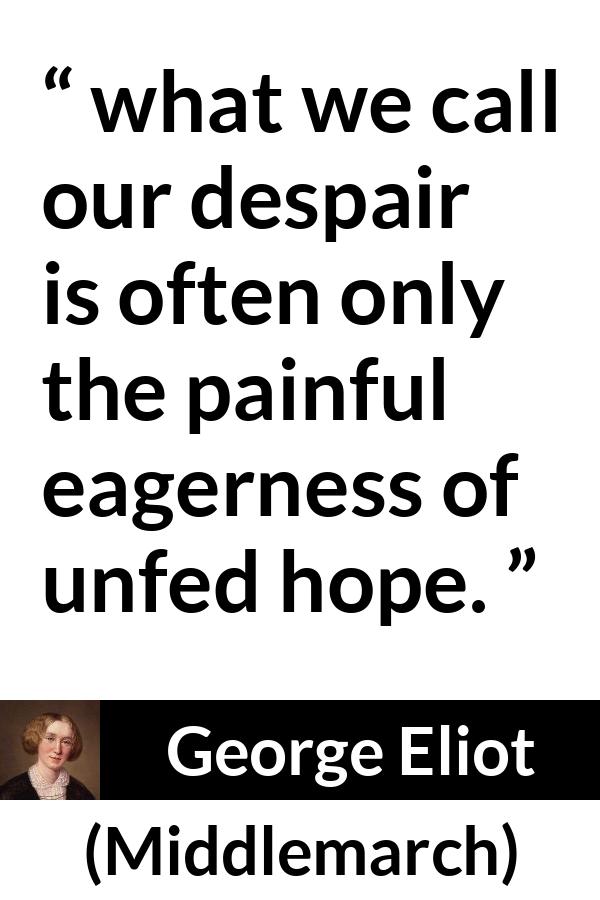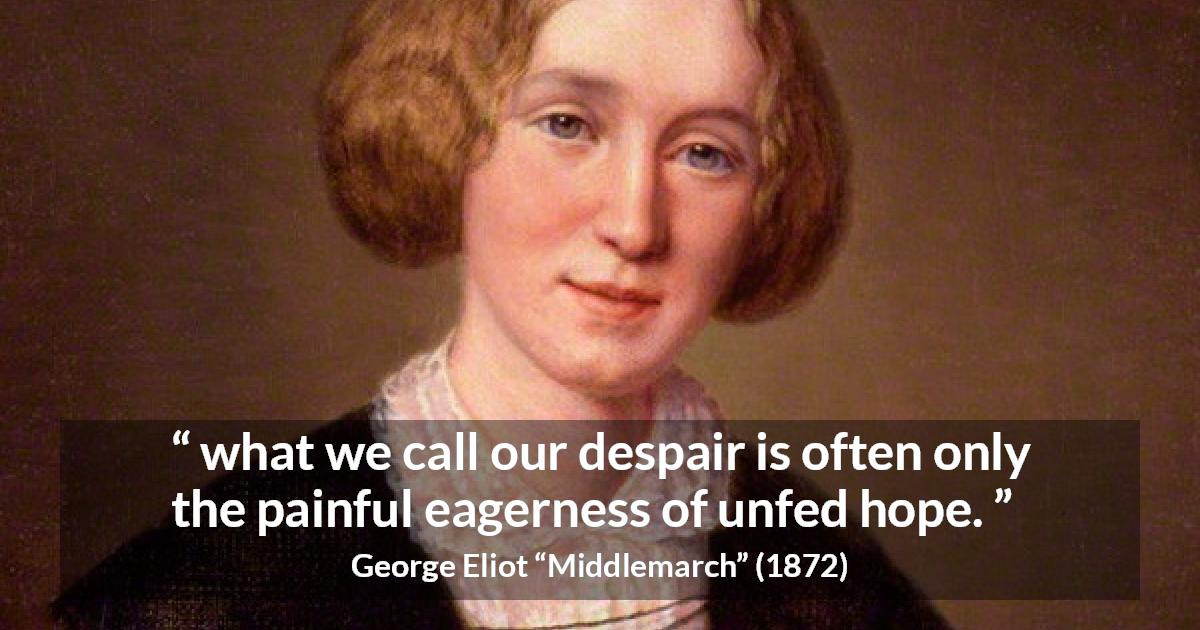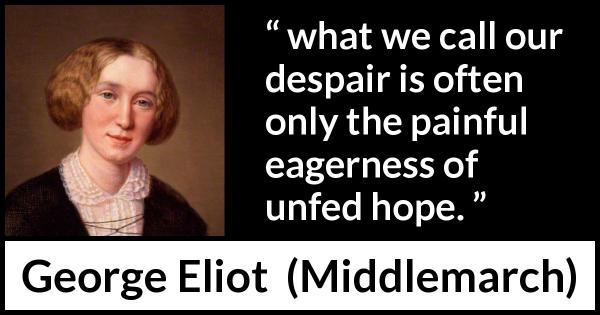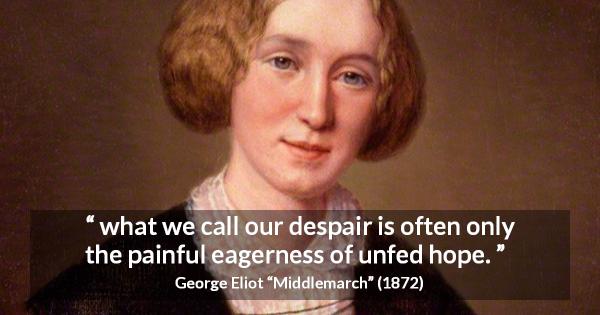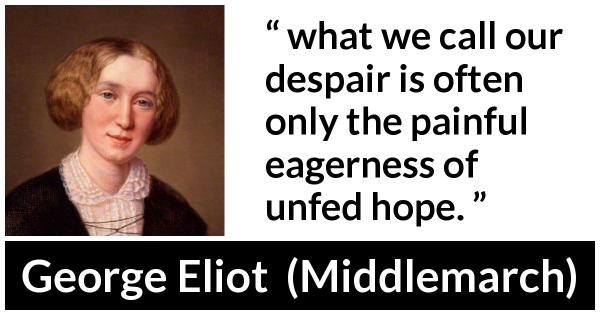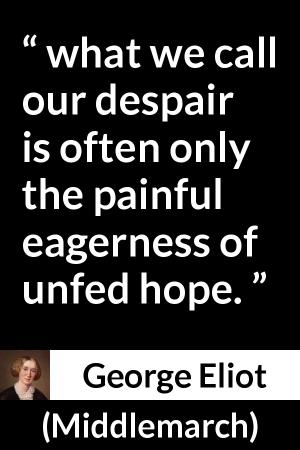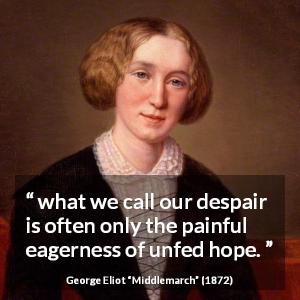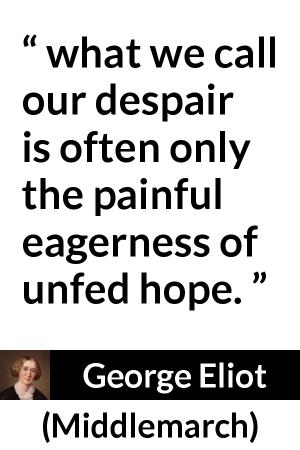“ what we call our despair is often only the painful eagerness of unfed hope. ”
George Eliot, Middlemarch (1872). copy citation
| Author | George Eliot |
|---|---|
| Source | Middlemarch |
| Topic | disappointment hope pain despair |
| Date | 1872 |
| Language | English |
| Reference | |
| Note | |
| Weblink | http://www.gutenberg.org/files/145/145-h/145-h.htm |
Context
“He began, not without some inward rage, to think of going away from the neighborhood: it would be impossible for him to show any further interest in Dorothea without subjecting himself to disagreeable imputations—perhaps even in her mind, which others might try to poison.
«We are forever divided,» said Will. «I might as well be at Rome; she would be no farther from me.» But what we call our despair is often only the painful eagerness of unfed hope. There were plenty of reasons why he should not go—public reasons why he should not quit his post at this crisis, leaving Mr. Brooke in the lurch when he needed «coaching» for the election, and when there was so much canvassing, direct and indirect, to be carried on.” source
«We are forever divided,» said Will. «I might as well be at Rome; she would be no farther from me.» But what we call our despair is often only the painful eagerness of unfed hope. There were plenty of reasons why he should not go—public reasons why he should not quit his post at this crisis, leaving Mr. Brooke in the lurch when he needed «coaching» for the election, and when there was so much canvassing, direct and indirect, to be carried on.” source
